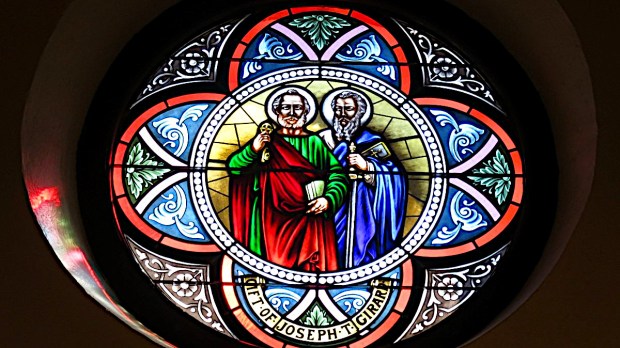It seems funny that Sts. Peter and Paul share a feast day when they were such very different people who didn’t spend much time together on earth.
St. Peter, the “heart,” was known for his impetuosity and was often driven by his emotions. Yet his depth of feeling was a great thing: His love for God emboldened him to do heroic deeds that may have made little sense from a logical point of view.
St. Paul, the “head,” was known for his learning and reason. He was logical and well-spoken but could also be polarizing. Perhaps surprisingly for such a well-educated and well-traveled man, he never lost a profound humility.
… the closeness that joined Peter and Paul did not come from natural inclinations, but from the Lord.
These two men were so different that Pope Francis even said of them:
We celebrate together two very different individuals: Peter, a fisherman who spent his days amid boats and nets, and Paul, a learned Pharisee who taught in synagogues. When they went forth on mission, Peter spoke to Jews, and Paul to pagans. And when their paths crossed, they could argue heatedly, as Paul is unashamed to admit in one of his letters (cf. Galatians 2:11). In short, they were two very different people, yet they saw one another as brothers … Yet the closeness that joined Peter and Paul did not come from natural inclinations, but from the Lord. He did not command us to like one another, but to love one another. He is the one who unites us, without making us all alike. He unites us in our differences.
They seem to symbolize the age-old divide between emotion and reason, between the heart and the head. So why do they share a feast day?
Well, their unity in the liturgical calendar reveals something very important about what God wants for his church and for each one of us.
Unity in diversity
Just as Sts. Peter and Paul worked together to spread the Gospel, even though they were so different, we are called to do that exact same thing.
Each one of us is called to share the Good News in our own way, and to worship and work together in unity with the rest of the Church.
We won’t always agree and we certainly won’t always handle things in the same way. But our diversity can be our greatest asset, as each person brings a different strength to the table.
Sts. Peter and Paul show us what this unity in diversity can look like in action.
Unity of life
Just as Sts. Peter and Paul worked together for the Kingdom, the head and the heart can and should be united. Faith and reason, feelings and logic, don’t have to be opposed. Instead, they need one another and can work together beautifully.
When all of our faculties are united toward God, we feel the peace and contentment that comes with real unity of life. St. Josemaria wrote:
These great horizons of our Christian vocation, this unity of life built on the presence of God our Father, can and ought to be a daily reality.
This shared feast day is a gentle reminder that the mind and heart can be integrated fully. Indeed, they are more powerful together than apart, just like Sts. Peter and Paul.



